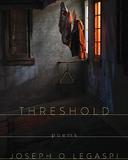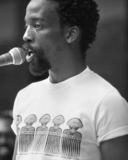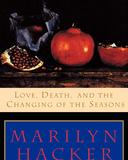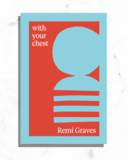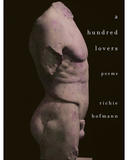Interview with poet Troy Cabida
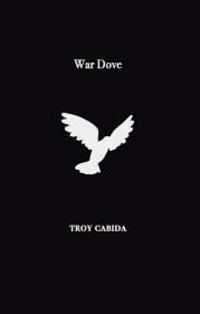
Troy Cabida (he/him) is a poet, producer, and librarian. He grew up in Las Piñas City, Metro Manila and is currently based in Earls Court, London. His writing explores being Filipino, sexuality, joy, othering, and fashion within the sphere of queerness. His poems appear in fourteen poems, bath magg, You’re Gonna Wanna Hear This (Pan MacMillan, 2020), Everything Is Going To Be All Right (Orion, 2021), and 100 Queer Poems (Vintage, 2022). His poem ‘How to wear a Love Bracelet’ was shortlisted for The Bridport Prize for Poetry 2022. His debut pamphlet, War Dove, was published by Bad Betty Press in 2020. Troy is an alumnus of the Barbican Young Poets and is a producer for the London-based open mic night Poetry and Shaah. Troy is currently undertaking a BA in Psychosocial Studies at Birkbeck, University of London and works for the National Poetry Library, Southbank Centre.
1. Has the contribution to this anthology prompted you to reflect on being a queer writer/poet in new ways?
Being part of the anthology has made me think about the relationship between my queerness and my writing, which reminded me of the ways I think about the relationship my Asian heritage has with my writing. Like I do with race, I think often about how the queerness of my identity potentially affects the ways in which I approach my writing, how I would like it to be perceived by others, and how much control I have and don’t have.
2. What are your discoveries in this process of exchanging ideas with another poet?
I realised how much (or rather, how little) time and space I’ve put into talking about poetry, especially within the context of it being formative to how I function as an Asian person and as a queer person. Even though I spend a lot of time working within the field of poetry, I find that the act of sitting down and sharing experiences on being a poet is not so regular, so getting the chance to speak with Theresa Muñoz made me realise how much joy there is in that, and how much I can learn from my fellow poets.
3. Do you remember how it was to begin to self-identify as a queer poet? Can you tell us more about it and how it has changed you/your writing journey?
I feel like I started identifying as a queer poet when my first pamphlet came out. It’s called War Dove, and was published by Bad Betty Press in 2020. In it, I explore coming out for the first time in a heteronormative society, and how that process affected me internally and the relationships I had with people around me. Having the book out in the world for other people to hold onto made me feel vulnerable at first, an explicitly queer body of work, but I’m grateful for it because I experienced a lot of community and solidarity through the book, which has fuelled me to be more bolder and more playful with the work I produce next.
4. What are your favourite books (poetry/fiction/non-fiction) written by queer writers?
I’m a huge fan of books by Joseph Legaspi, Essex Hemphill, Marilyn Hacker, Remi Graves, and Richie Hofmann. I’m very grateful to have been published by the queer publication house fourteen poems by Ben Townley-Canning, once in their sixth issue and a second time in their anthology Bi+ Lines, which is co-edited by my good friend and another fantastic queer poet Helen Bowell. I’m also a huge DC Comics fan, and I love the work Phil Jimenez and Allan Heinberg have done with Wonder Woman’s lore.
5. To you personally, what is/are the most difficult emotion(s) to write about, and why?
I think desire is quite challenging to write about, just because there’s a lot of eyes on it. I feel like there’s a lot of expectation when it comes to reading desire. For me personally, I find that I feel some level of shame and vulnerability that I know I have to work on when writing about desire from a queer perspective, be it romantic, sexual, or desire for material things. Part of the freedom in enacting and expressing queer desire is acknowledging the learned violences that we attach to it, and how little meaning they truly have.
Read Troy's poem “Here is a kind of love”


